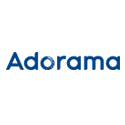Panasonic Lumix DMC-FZ100 Review
Panasonic Lumix DMC-FZ100 Introduction
The Panasonic Lumix DMC-FZ100 is a 14 megapixels digital camera with an ultra-wide stabilized 24X optical zoom lens, equivalent to 25-600mm. This prosumer ultra-zoom uses a CMOS sensor to give it high-speed capabilities include full 1080p video capture with stereo sound, 11 FPS continuous drive and high-speed video recording. It is ergonomically shaped like a miniature SLR and has plenty of external controls to access its expansive feature set.
The FZ100 provides advanced photographic controls including full manual-controls, manual focus, choice of metering, custom white-balance, white-balance fine-tuning, braketing and full manual-controls over video. This digital camera supports external lighting via its hot-shoe and external audio input via a standard mini-jack. For framing, the FZ100 has both an electronic viewfinder (EVF) and rotating 3" display with 230k pixels.
This express digital camera review analyses the features, ergonomics, usability, performance and image quality of the Panasonic Lumix DMC-FZ100.
Panasonic Lumix DMC-FZ100 Features
Sensor & Exposure
- 14 Megapixels CMOS sensor
- ISO 100 to 1600 sensitivity at full-resolution
- ISO 1600 to 6400 at 3 MP in Low-Light mode
- Auto ISO based on light-levels and movement
- 1/2000-60s Shutter-speeds for still images
- 1/20000-1/30s Shutter-speeds for videos
- PASM Exposure modes for both stills and video
- Program-Shift in P mode
- Exposure-Compensation, ±3 in 1/3 EV increments
- Exposure Bracketing, 3 frames, maximum ±3 EV
- Multi-Segment, Average and Spot metering
Lens
- 24X Optical zoom range
- F/2.8-5.2-8 Aperture range
- Ultra-Wide-Angle 25-600mm equivalent
- Optical Image Stabilization: Shooting-Only, Continuous or Panning
- 30cm (W) - 2m (T) Normal minimum focus
- 1cm (W) - 1m (T) Macro minimum focus distance
Image Parameters
- Automatic, 5 presetsDaylight, Cloudy, Shade, Flash, Incandescent, Kelvin and custom white-balance, 2 memories
- WB fine-tuning, 19 steps along 2 axis
- White-Balance bracketing, 3 frames
- Standard, Dynamic, Nature, Smooth, Vibrant and Nostalgic color modes
- Standard, Dynamic & Smooth BW modes
- Adjustable Contrast, Sharpness, Saturation, Noise-Reduction, 5 steps each
Focus
- Normal, Macro and Manual focus modes
- Single, Automatic, Tracking and Face-Detect focus-point selection
- Prefocus: Off, Quick or Continuous
- Manual Focus assist
- AF Assist-Lamp
Drive
- Single-shot
- 5 or 2 FPS @ full-resolution
- 11 FPS @ full-resoltion, focused on first shot
- 40 FPS @ 5 megapixels, focused on first shot
- 60 FPS @ 2.5 Megapixels, reduced field-of-view
- Self-Timer, 2s, 10s or 3-shot @ 10s
Display & Viewfinder
- Rotating 3" LCD, 230K Pixels
- 0.2" EVF, 200K Pixels
- Live histogram
- Framing grid
- Adjustable LCD brightness
Video
- 1920x1080 @ 60 FPS, stored as 60i in AVCHD format
- 1280x720 @ 60 FPS in AVCHD format
- 1280x720 @ 30 FPS in Motion-JPEG format
- 320x240 @ 220 FPS High-Speed Video resolution
- AF-S or AF-C focus
- Built-in stereo microphone
Flash
- Flash-Compensation, ±2 in 1/3 EV increments
- Auto, Auto Redeye, Forced, Redye & Slow-Sync flash modes
- First or Rear curtain flash sync
- Optional Redeye reduction
- Flash Hot-Shoe
Connectivity
- Stereo Sound input
- HDMI (1080i) output
- A/V (NYSC / PAL) output
- USB 2.0 connectivity
Misc
- 4:3 (Native), 3:2, 16:9 & 1:1 Aspect-Ratio
- Combined AE-L/AF-L button
- Customizable Fn button
- Panorama Assist Mode
- Panning Mode
- 17 Scene Modes
- Face Recognition
- Lithium-Ion battery
- SDXC memory

Panasonic Lumix DMC-FZ100 Suitability - What is it good for?
As a prosumer ultra-zoom, the Panasonic Lumix DMC-FZ100 is among the most complete fixed-lens cameras and is extremely versatile. Surely the incredible 24X zoom range which starts at an ultra-wide 25mm, reaching a super-telephoto 600mm, is its greatest asset. This range of focal-length covers most photographic needs from architecture to wildlife with everything in between.
This digital camera also offers a complete set of manual controls including a shutter-speed range of 1/2000s to 60s. This makes it highly suitable for creative photography. The fastest shutter-speed is quick enough to freeze most action while the slowest is long enough for night photography including light trails. Having manual focus available greatly helps since low-light photography is often problematic for autofocus.

The high-speed CMOS sensor and mechanical shutter can shoot continuously at 11 FPS, which is faster than even professional DSLRs. This is ideal for fast action that occurs at a fixed distance from the photographer since the FZ100 is unable to autofocus at those speeds. Dropping down to a respectable 5 FPS, the FZ100 can follow moving subjects which is great for sports photography. There are also low-resolution high-speed drive modes up to 60 FPS which are useful to capture precise moments.
The limitations of the FZ100 are all inherent from its small sensor size. This is the case for all ultra-zooms but not for DSLRs and most ILCs. Given its sensor-size, the FZ100 is not suitable for low-light hand-held photography such as indoor and social events. There is also a limitation in terms of creativity due to the relatively high depth-of-field produced by small sensors like the one used here. Still, far away subjects can be isolated from the background by using the incredibly long zoom of this digital camera.
The small sensor is actually an asset for macro photography which often suffers from too little depth-of-field. Thanks to a minimum focus distance of 1cm, the FZ100 can capture tiny objects like jewelry in great details.
Panasonic Lumix DMC-FZ100 Usability - How easy is it to use?
This ultra-zoom is designed along the lines of a miniature DSLR with a well-defined hand-grip, protruding lens barrel and combined viewfinder and flash housing hump. This makes the Panasonic FZ100 comfortable to hold and easy to keep steady. The electronic viewfinder protrudes nicely from the back to keep the photographer from pressing against the camera too much.
 The shutter-release is located at the top of grip. It is a standard two-stage release with a soft halfway point. A variable speed zoom-controller is wrapped around the release. The lens moves quickly, going across the 24X zoom in just under 4s. It moves in fine steps, making it possible to zoom with good precision.
The shutter-release is located at the top of grip. It is a standard two-stage release with a soft halfway point. A variable speed zoom-controller is wrapped around the release. The lens moves quickly, going across the 24X zoom in just under 4s. It moves in fine steps, making it possible to zoom with good precision.
Just behind the shutter-release is the dedicated Video Record button. Pressing it starts video capture up to two seconds later and stops recording immediately when pressed again. Using this button, video can be recorded in any exposure-mode with two important caveats:
- Video exposure remains automatic in all exposure modes except Manual Video, as explained in more details below.
- The EVF and LCD can only show correct framing for video or stills. Therefore it either the shutter-release or the video-capture button becomes useless.
Further behind the Video Record button is a very small Continuous Drive button. Being one of the FZ100's headline features, there are 7 continuous drive modes:
- 2 AF - Shoots at continuously at 2 FPS using the mechanical shutter and focusing between each shot. Up to 100 shots can be captured in a single burst.
- 2 - Shoots at continuously at 2 FPS using the mechanical shutter and focusing on the first shot only. Up to 100 shots can be captured in a single burst.
- 5 AF - Shoots at continuously at 5 FPS using the mechanical shutter and focusing between each shot. Up to 100 shots can be captured in a single burst.
- 5 - Shoots at continuously at 5 FPS using the mechanical shutter and focusing on the first shot only. Up to 100 shots can be captured in a single burst.
- 11 - Shoots continuously at 11 FPS using the mechanical shutter, focusing and metering on the first shot. Up to 15 shots can be captured in a single burst.
- 40 - Shoots continuously 5 megapixel images at 40 FPS using the electronic shutter, focusing and metering on the first shot. Up to 50 shots can be captured in a single burst.
- 60 - Shoots continuously 2.5 megapixel images at 60 FPS using the electronic shutter while focusing and metering on the first shot only. Pixels are taken from the center of the sensor, so the field-of-view is greatly reduced. Up to 60 shots can be captured in a single burst.
At the back edge of the top plate is a simple power slider. It protrudes enough to be easily used and has a strong detent to prevent accidental use. The Panasonic Lumix DMC-FZ100 remembers all settings except the Self-Timer. Optionally, it can remember the zoom position and manual focus distance. If one does repeated shots such as when capturing a time-lapse, it is very useful to have those settings remembered should the memory card or battery need changing.
The FZ100 features a busy mode-dial with 14 positions. The standard PASM exposure modes are all there. iA is the fully automated mode. This one allows to set EC but fixed ISO and WB on Auto. It only allows maximum resolution continuous drive modes and single-shot self-timers. There are also six scene-modes with there own positions plus a SCN position that gives access to a menu of 17 scene modes. Of those 17 scene modes, 13 are typical, while the following 4 are worth mentioning:
- Panorama Assist - Helps line-up images for making a panorama photo. Images can be taken in any direction which is chosen upon entering Panorama Assist mode. The FZ100 goes beyond other panorama assist modes in letting each shot be retaken before proceeding to the next one. This is immensely useful and kudos to Panasonic for thinking about this! A typical use case is when capturing a panorama of a large plaza. Shots may need to be retaken due to passing vehicles or people.
- Flash Burst - Takes pictures continuously with the flash firing along each image.
- Panning - Instructs the stabilizer to only compensate for vertical shake. There is an Program and Shutter-Priority variant of this mode.
- High-Speed Movie - Records video at 320x240 @ 220 FPS, capturing a high-speed scene to play it back in slow motion, at least 7X slower than reality.
There is a Custom position on the mode-dial to recall settings from one of three memories. The final mode on the mode dial is Manual Movie mode. In this mode the camera can record video using PASM exposure modes. Since the camera has to use an electronic shutter to record video, speeds up to 1/20000s can be selected. Oddly, the minimum shutter-speed is 1/30s, even when recording video at 60 FPS. The FZ100 is the first ultra-zoom to capture true 1080i video, rather than progressive video stored as interlaced. So, only half of each frame gets saved when recording full HD. For 720p, this camera stores the full 60 FPS in AVCHD format or 30 FPS in MPEG-4 format.
Movie mode always shows the correct framing for video and shortens the time it takes for recording to start to just over one second. In this mode, both the shutter-release and the dedicated video-record button can be used to start filming.

The last remaining items on the top plate are a standard hot-shoe for external flashes, the built-in popup flash and a stereo microphone. The microphone includes a built-in wind-filter which is activated from the Motion Picture menu. The microphone can optionally be coupled with the zoom lens so that it records sounds from a narrower field when the lens zooms in.
The back of the camera is dominated be a large rotating 3" LCD with 230K pixels. The hinge allows the LCD to be rotated 180° outwards and 270° vertically but is rather flimsy and probably the least durable part of this digital camera. Visibility of the LCD is superb with an awesome antireflective coating that does its job extremely well. It has a very good angle-of-view.
The view on the LCD and EVF is not Exposure-Priority until the shutter is press halfway. When pressed halfway, the preview is mostly correct, providing a good approximation of exposure. There is a note in the manual saying that the live-histogram turns yellow when the displayed image does not show the correct brightness. Since the displays are not exposure-priority, it turns yellow as soon as an EC is dialed-in! Also, it is far more often wrong than right. The first issue is that it is based on the displayed brightness and not the metered one. This means that when the shutter is pressed halfway, the live-histogram frequently adjusts itself. Even so, it is unfortunately off by about 1/3 EV, inciting over-compensation for high contrast scenes.

Above the rear LCD, there is a small 0.2" EVF with 200K pixels which is usable for framing. The low resolution makes it impossible to confirm focus and difficult to dicern fine subject details. A small button towards the right toggles between the EVF and LCD. Both framing and playback are possible using the EVF, with a confuration option to always use the LCD when entering Playback mode. A bit further right is the AE-L/AF-L button which is customizable to perform AE-L, AF-L or both. To the left of the EVF is a mechanical flash-release button.
The Panasonic Lumix DMC-FZ100 has a single control-dial to set exposure parameters. The dial doubles as a button to cycle between parameters and EC as needed. In Program mode, it cycles between EC and Program-Shift. In Aperture-Priority and Shutter-Priority it toggles between the exposure parameter and EC. In Manual, it toggles between Aperture and Shutter-Speed. The modality of this system makes it easy to inadvertantly set EC instead of the exposure parameter. In Manual Focus mode, the control-dial also cycles to set the focus distance. While the control-dial turns easility, it is too flush with the back to be used with gloves on.
To the right of the rotating LCD are most remaining controls of the FZ100. All these buttons are on the small side but only Playback is difficult to use since it is completely flush with the surface of the camera. We would say the placement is questionable given that Display and Playback are more accessible than far more important controls like ISO and Self-Timer. There is a button for EC which is redundant with the control-dial's button function. The Q.Menu button which is the lowest brings up a menu to change secondary camera setttings.
 The 4-way controller which is used to navigate menus is made of 5 separate buttons, each assigned a function:
The 4-way controller which is used to navigate menus is made of 5 separate buttons, each assigned a function:
- Up: Brings up the redundant EC function, AEB and FC. EC is available ±3 EV in 1/3 increments. FC is available ±2 in 1/3 increments. AEB always takes 3 frames with interval between 1/3 and 3 EV, selectable in 1/3 increments.
- ISO: Selects the ISO between 100 and 1600, plus one of two Auto modes. Standard Auto ISO mode selects an ISO based on light-levels. Intelligent Auto ISO selects and ISO based on subject movement.
- Fn: This one can be customized to set one of: Film Mode, Aspect Ratio, Image Quality, Metering, White-Balance, Intelligent Exposure, Guides, Rec Area and Remaining Space. The most useful option is probably WB for those shooting JPEG and Exposure for those shooting RAW.
- Self-Timer: Selects between a 2s, 10s or tripple 10s timer. One a shot is taken, the Self-Timer resets itself. It also prematurely resets itself when changing exposure modes and when entering the main menu, but not the Quick Menu. Tripod shooters are likely to find this rather annoying.
The last controls on the FZ100 are a focus button and a 3-way switch on the lens barrel which selects between AF, Macro AF and MF mode. The focus button triggers autofocus in MF mode to set the starting point for fine-tuning focus. Otherwise, it can take a really long time to move focus to where it is desired.
The bottom of the camera reveals a combined battery and memory compartment plus a metal tripod mount. The tripod mount is neither inline with the optical center of the lens nor the center of gravity of the camera, making it less tha ideal for usual tasks.


Panasonic Lumix DMC-FZ100 Performance - How well does it take pictures?
To pack a whopping 24X optical zoom lens in a camera this size, the Panasonic Lumix DMC-FZ100 uses a tiny sensor so that its 4.5-108mm lens equates to 25-600mm in 35mm terms. This is the case for all current ultra-zooms and perfectly represents the compromise offered by this type of camera. This huge zoom range means flexibility while the small sensor sets expectations of limited image quality, particularly at the density of the this digital camera which captures 14 megapixels images. As a comparison, to offer the same optical zoom range with high image quality requires at least 3 lenses and a Micro Four-Thirds SLD with just one lens costing more than the FZ100 itself.
The Panasonic FZ100 shows noticeable image noise starting at its base ISO of 100. It is not overly destructive and it increases slightly at ISO 200. Both these settings can produce nice medium-size prints. Noise reduction softness kicks in at ISO 400 which does a decent job at hiding excessive noise. Depending on subject tonality, this ISO can still be used for an 8x12" print. It will not stand close inspection but should be very presentable at normal viewing distances.
ISO 800 and 1600 show a strong increase in softness, effectively hiding image noise and fine details. Despite offering 5 levels of Noise-Reduction, there is no way to avoid this with the FZ100. The lowest setting damages all fine details and the ones above that even more. There is a Low-Light Scene Mode which uses pixel binning to produce lower resolution images at ISO 1600 to 6400 but it produces noisy images with obliterated details.

While there are a number of color modes, called Film Modes, which can be fine-tuned in terms of contrast and saturation, the FZ100 is incapable of producing images with realistic colors. There is a RAW format option which can be used to get around this by those willing to take the time to process RAW data using a custom color profile. Film Modes can also be tweaked in terms of Sharpness. The default is probably best as images quickly get soft or over-sharpened away from that setting.
White-Balance is excellent on the FZ100. The Automatic option copes very well with various types of artificial light and performs impeccably outdoors. Custom WB is very accurate as well. There is also fine-tuning in 19 steps along 2 axis to refine white-balance when needed, which thankfully rarely happens.
The multi-segment metering system used by this digital camera is generally good. It has an occasional tendency to over-expose bright backgrounds. Foreground exposure is usually good except that the live- histogram often misleads the photographer into thinking otherwise. Still, exposure is rarely off by more than 1/3 EV.
The Leica branded lens on the FZ100 is probably quite sharp but high image noise hides this somewhat. Still, at ISO 100, details are acceptable clear at the center of the frame. There is a very gradual increase in softness towards corners which never gets extremely soft. Optical distortion is noticeable but quite weak towards the ultra-wide end of the zoom. At other focal-lengths though, distortion is pretty much invisible. Purple fringing is not a problem with this lens either.
One of the advantages of using a CMOS sensor is that it gives high-speed capabilities. The FZ100 particularly is generally fast and even shows class-leading performance in terms of continuous drive. Panasonic gave this digital camera a very quick mechanical shutter which can cycle at 11 FPS. This makes it the fastest to use a mechanical shutter among all types of cameras, including much more expensive SLRs and SLDs. As noted above in the Suitability section of this review, the FZ100 cannot focus between shots at such high speeds. For that, it has to slow down to 5 FPS which is still faster than most fixed-lens cameras.
The following performance numbers characterize the performance of this camera:
- Startup: Normally 2 seconds. If the Lens Resume option is enabled, it may take up to 4 seconds. Average for an ultra-zoom.
- Shutdown: Between 1½ and 4 seconds, depending on the lens position. Average to slow compared to similar cameras.
- Zoom: 3½ seconds for the entire 24X zoom range. Reasonable for such a long electronic zoom.
- Autofocus: ½ in good light, all the way to 3 seconds in less than ideal lighting. This is quick to glacially slow.
- Shutter-Lag: ¼ second. Relatively good.
- Shot-to-Shot: At least 3 seconds, takes longer in low-light due to noise-reduction. Certainly slower than average.

While this shows some good numbers, the FZ100 is more variable than most digital cameras. Of particular concern is the autofocus speed which is rather quick in bright outdoors locations but quickly drops in typical indoor conditions. In low light, autofocus becomes extremely slow and gives up often after trying to lock focus for several seconds.
Video performance is mixed as well. At full HD, the FZ100 captures 60 Fields-Per-Second and creates a 1080i stream. This leaves interlacing artifacts which are particularly visible when the camera is panned. Details are well captured and exposure adjusts gradually during filming. What it does extremely well is keep things in focus while recording. The default video focus mode is AF-C which follows moving subjects rather well.
The Panasonic Lumix DMC-FZ100 uses a large proprietary Lithium-Ion battery which supplies 410 shots per charge according the CIPA standard. While this a good enough for a typical day of shooting, it is considerably below average among large ultra-zooms.
Panasonic Lumix DMC-FZ100 Conclusion

The Panasonic Lumix DMC-FZ100 is a feature-rich ultra-zoom with a class-leading high-speed continuous drive. Within its ergonomic body, this digital camera packs an extremely versatile 24X optical zoom lens of exceptional quality.
In brightly lit conditions, the Panasonic FZ100 delivers very usable images quickly thanks to its fast autofocus system which can be used at speeds up to 5 FPS. Color and exposure may not be perfect but they are not so far off either. Darker conditions are more stressful to the FZ100 and it would be hard to recommend this model for indoor photography.
The FZ100 is a good candidate for photography during certain types of travel like tours where people often visit sites in bright daylight and the entire group is moving quickly from place to place. Having an all-in-one camera like this one for such occasions means that lots of photos can be taken with a variety of focal-lengths without slowing others down.
 |
Please Support Neocamera
All information on Neocamera is provided free of charge yet running this website is a huge endeavor. Purchases made via affiliate links found throughout the site help keep it running and up-to-date. There is no additional cost to you, so please consider buying via these links to our affilates:
Thank you for your support!
Panasonic DMC-FZ100 Highlights

Sensor-Size: 6 x 5mm

Actual size when viewed at 100 DPI
| 14 Megapixels Ultra Zoom | ISO 80-1600 |
| 24X Ultra-Wide Optical Zoom | Shutter 1/2000-60s |
| Built-in Stabilization | Full manual controls, including Manual Focus |
| 0.20" Built-in EVF 200K Pixels | Custom white-balance with 2 axis fine-tuning |
| 11 FPS Drive, 15 Images | Spot-Metering |
| 1920x1080 @ 30 FPS Video Recording | Hot-Shoe |
| 3" LCD 230K Pixels | Stereo audio input |
| Lithium-Ion Battery | |
| Secure Digital Extended Capacity, Internal Memory |
Updates
2025.11.13

Best Gifts for Photographers in 2025 by Budget
The annual Neocamera Photography Gift Guide updated to 2025. Find great gifts for photographers with any price budget.
2025.07.07

Stellar Photo Recovery Review
Review of Stellar Photo Recovery V12. This Windows and MacOS software can recover photos and videos in a huge number of formats from memory cards, USB drives, SSDs and HHDs.
2025.05.14

Huion Kamvas 13 Gen 3 Review
In-Depth review of the Huion Kamvas 13 Gen 3 Pen Display Tablet for photographers and graphic artists.
2025.01.18

Fujifilm GFX 2025 Lens Roundup
Lens Review roundup of Fujifilm GFX Medium-Format lenses. Quality, performance and handling of the GF20-35mm F/4R WR, GF30mm F/3.5 Tilt-Shift and the GF55mm F/1.7.
2024.11.18

Best 2024 Photography Gifts for Every Budget
Great gifts for photographers and photo enthusiasts selected for every budget among the best products of 2024.
2024.08.07

Eye Protection Tips for Professional Photographers
The four main considerations for professional photographers regarding eyewear.
2024.07.14

Fujifilm X100VI Review
Flagship fixed-lens compact digital camera with a 40 MP sensor and Image-Stabilization, a first for the series. Retro design featuring dual control-dials, plus direct ISO, Shutter-Speed and EC dials. Its hybrid viewfinder can switch between EVF and OVF mode.
2024.05.09

Fujifilm GFX100 II Review
Flagship 102 Megapixels Medium-Format Mirrorless Digital Camera with 8-Stop 5-Axis IBIS, 8 FPS Drive, 8K Video and 400 MP Super-Resolution capture in a weatherproof and freezeproof body with dual control-dials and dual memory-card slots.
2024.04.03

Fujifilm X-T5 Review
Newest Fujifilm flagship boasting a 40 MP APS-C sensor, 5-axis IBIS with 7-stop efficiency, 15 FPS continuous drive, 6.2K Video capture, dual control-dials and dual SDXC UHS-II slots in a sturdy weatherproof and freezeproof body.
2023.11.20

Best Digital Cameras of 2023
Find out which are the Best Digital Cameras of 2023. All the new Mirrorless Digital Cameras from entry-level to high-end professional.
2023.07.10

Fujifilm X-H2 Review
40 Megapixels APS-C Hybrid Mirrorless Digital Camera with 7-stop IBIS. Fastest shutter ever and 8K video capture. Large builtin EVF with 0.8X magnification and 5.8 MP, plus an Eye-Start Sensor. Packed with features and large number of controls in a weatherproof and freezeproof body.
2023.05.07

Sony FE 20-70mm F/4G Review
Review of the unique Sony FE 20-70mm F/4G lens. The optical zoom of this lens spans ultra-wide-angle and medium focal-length coverage, making it one of the most versatile Full-Frame lenses on the market.











